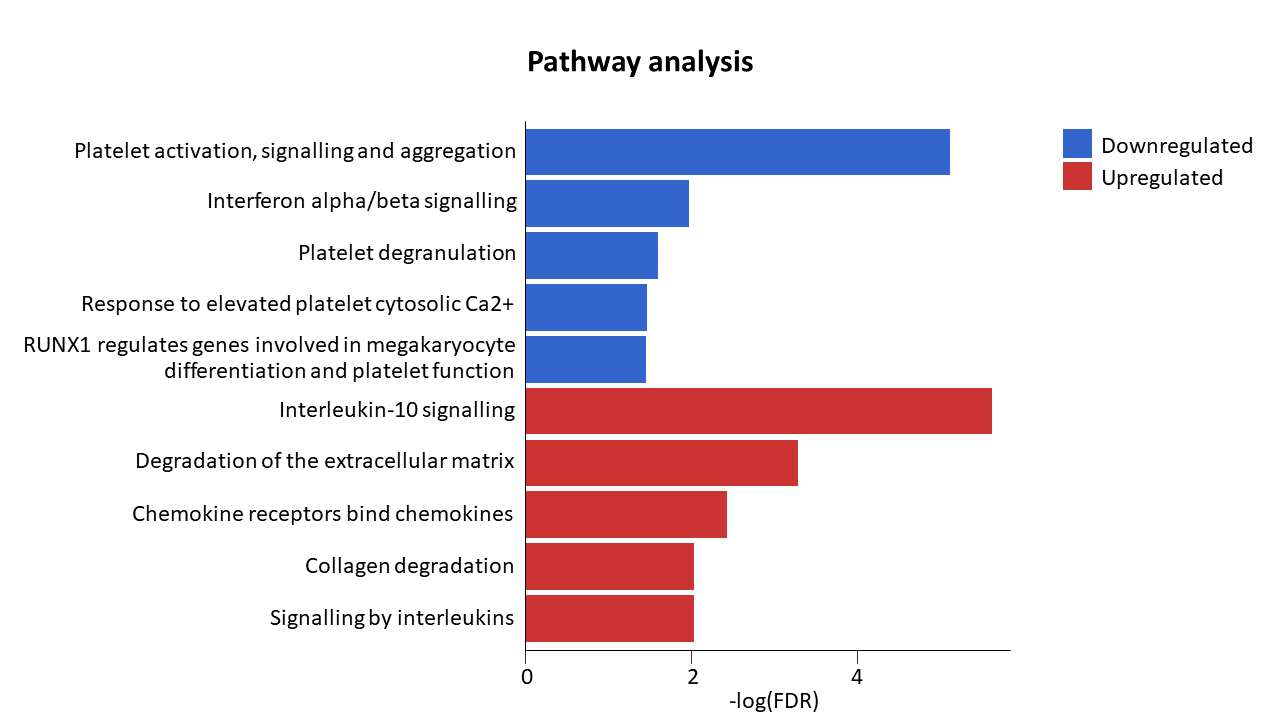Abstract Number: OC 29.4
Meeting: ISTH 2021 Congress
Theme: Platelets and Megakaryocytes » Megakaryocytes and Thrombopoiesis
Background: The non-receptor tyrosine kinase SRC was extensively studied in platelets1, but there is also evidence that SRC plays an important role during megakaryopoiesis, originating from the identification of the heterozygous SRC E527K germline variant in three families causing thrombocytopenia and bleeding symptoms2–4. Cellular studies showed that SRC-E527K is a gain-of-function variant resulting in hyperactive SRC signalling. The expression of lentiviral SRC-E527K in healthy hematopoietic stem cells (HSC) decreases proplatelet formation in contrast to SRC-WT. Additionally, E527K deficient megakaryocytes (MK) present with increased spreading on fibrinogen with the formation of elevated podosome numbers2,4. Downstream effectors of SRC signalling important for megakaryopoiesis are not known.
Aims: Our aim was to study SRC kinase activity during megakaryopoiesis using healthy and E527K-defective MK using a combined transcriptomics and proteomics approach.
Methods: SRC-WT and SRC-E527K lentiviral transduced MK were subjected to RNAseq and shotgun proteomics. Validation of differentially expressed genes (DEG) was performed with qRT-PCR using transfected immortalized megakaryocytic cell lines (imMKCL) and MK differentiated from control and patient-derived inducible pluripotent stem cells (IPSC).
Results: RNAseq of differentiated MK from healthy HSC transduced with SRC-WT versus SRC-E527K showed 691 significant DEG (56% downregulated). The Reactome pathway analysis shown in Figure 1 presents the top 5 down- and upregulated pathways. Next, the proteomic analysis of the MK cultures shows 141 significant differentially expressed proteins (DEP; 70% downregulated). A combined pathway analysis using DEG and DEP datasets detected interferon-stimulated genes (ISG) as most significantly downregulated in hyperactive SRC signalling during megakaryopoiesis (p-value adjusted for FDR=8,33e-15). Validation experiments using transfected imMKCL confirm the downregulation of ISG in SRC-E527K transfected cells. Finally, patient-derived MK but not undifferentiated IPSC show a downregulation of ISG compared to control conditions.
Conclusions: Our data show an important role for the interferon pathway in hyperactive SRC signalling during megakaryopoiesis.
1PMID: 33255186
2PMID: 26936507
3PMID: 31204551
4PMID: 33054137
To cite this abstract in AMA style:
De Kock L, Ver Donck F, Thys C, Van Geet C, Freson K. Transcriptomics and Proteomics to Study the Effect of Hyperactive SRC Kinase during Megakaryopoiesis [abstract]. Res Pract Thromb Haemost. 2021; 5 (Suppl 2). https://abstracts.isth.org/abstract/transcriptomics-and-proteomics-to-study-the-effect-of-hyperactive-src-kinase-during-megakaryopoiesis/. Accessed April 19, 2024.« Back to ISTH 2021 Congress
ISTH Congress Abstracts - https://abstracts.isth.org/abstract/transcriptomics-and-proteomics-to-study-the-effect-of-hyperactive-src-kinase-during-megakaryopoiesis/
